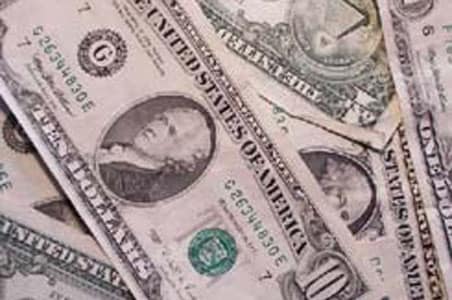
Washington DC:
World Bank President Robert Zoellick has said that the US dollar's role as the world's reserve currency may be diminishing and the United States should recognise this fact.
"Looking forward there will increasingly be other options to the dollar," he said.
Zoellick, a former high-ranking US government official and investment banker, pointed to the Euro and China's Renminbi as possible future alternatives.
In a wide ranging speech in Washington, Zoellick also said he opposed giving more authority to the US Federal Reserve, arguing instead that the Treasury Department is better equipped to manage financial crises.
Zoellick said it would be difficult to vest the independent and powerful technocrats at the Federal Reserve with more authority.
On the heels of the G-20 summit in Pittsburgh, Zoellick welcomed its role as the "premier economic forum" but warned industrial nations not to ignore those left outside the club.
China, Russia and India have indicated that they want to see long-term changes in the international monetary system in the wake of the financial crisis that has pushed the world economy into its first synchronised downturn since World War II.
But they have been careful to not push their desire for change too far, in case the US dollar slumps and the value of their large dollar-denominated investments plummets.
Zoellick reflected on the changing political climate in the aftermath of the global financial crisis.
"The current assumption is that the post crisis political economy will reflect the rising influence of China, probably of India and of other large emerging economies," he said.
The United States may see a reduction in its economic power and influence, he added, arguing that there are "good reasons for this perception."
"China has responded strongly to the crisis both in terms of stimulus and monetary policies and it seems to have a deep treasure chest to back up its first moves," he said.
In the run up to the global financial crisis, Zoellick said the world's main central banks failed to address risks building in their countries' economies.
He said most decided that asset price bubbles were difficult to identify and to restrain with monetary policy.
Zoellick said central banks had wrongly argued that damage to the real economy of jobs, production, saving and consumption could be contained once bubbles burst through aggressive easing of interest rates.
Zoellick was speaking in advance of the World Bank's annual meeting next week in Istanbul.
"Looking forward there will increasingly be other options to the dollar," he said.
Zoellick, a former high-ranking US government official and investment banker, pointed to the Euro and China's Renminbi as possible future alternatives.
In a wide ranging speech in Washington, Zoellick also said he opposed giving more authority to the US Federal Reserve, arguing instead that the Treasury Department is better equipped to manage financial crises.
Zoellick said it would be difficult to vest the independent and powerful technocrats at the Federal Reserve with more authority.
On the heels of the G-20 summit in Pittsburgh, Zoellick welcomed its role as the "premier economic forum" but warned industrial nations not to ignore those left outside the club.
China, Russia and India have indicated that they want to see long-term changes in the international monetary system in the wake of the financial crisis that has pushed the world economy into its first synchronised downturn since World War II.
But they have been careful to not push their desire for change too far, in case the US dollar slumps and the value of their large dollar-denominated investments plummets.
Zoellick reflected on the changing political climate in the aftermath of the global financial crisis.
"The current assumption is that the post crisis political economy will reflect the rising influence of China, probably of India and of other large emerging economies," he said.
The United States may see a reduction in its economic power and influence, he added, arguing that there are "good reasons for this perception."
"China has responded strongly to the crisis both in terms of stimulus and monetary policies and it seems to have a deep treasure chest to back up its first moves," he said.
In the run up to the global financial crisis, Zoellick said the world's main central banks failed to address risks building in their countries' economies.
He said most decided that asset price bubbles were difficult to identify and to restrain with monetary policy.
Zoellick said central banks had wrongly argued that damage to the real economy of jobs, production, saving and consumption could be contained once bubbles burst through aggressive easing of interest rates.
Zoellick was speaking in advance of the World Bank's annual meeting next week in Istanbul.

